This is part of the Successful Businesses Interview Series, where I feature successful businesses that are making a difference in others’ lives.
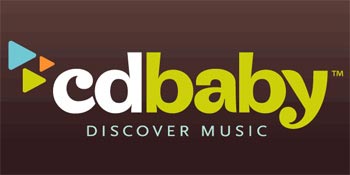
The sixth interview in our Successful Businesses Interview Series features CD Baby – the largest online distributor of independent music. If you’re a musician, you’d most probably have heard of CD Baby. It’s one of the top 8,000 websites globally (Alexa). To date, it has brought in over $100M in sales for over 150,000 musicians around the world!
CD Baby is a company run by musicians, for musicians. There are no distributors or major labels involved – it sells only music that musicians send them directly. Whereas in a regular record deal or distribution deal, musicians only make $1-$2 per album (if they’re ever lucky enough to get paid at all).
With CD Baby though, musicians get to make $6-$12 per album and get paid weekly. More reason to create and sell music independently, in a world where technology and the internet are making it easier for new artists to get their music out there without a label (think Youtube and iTunes).
CD Baby was started by accident by Derek Sivers in 1998, when he was selling his own CD on his website, and friends asked if he could sell theirs, too. For those who don’t know Derek, he’s a renowned entrepreneur, regular speaker at TED and a professional musician. His past TED talks include Keep Your Goals To Yourself and How to Start a Movement. He even has his own Wiki page.
10 years later in 2008, Derek sold CD Baby to focus on other ventures to help more musicians. Derek is also known as the $22 million-dollar man, as that’s the amount he sold CD Baby for (though he doesn’t talk about it much nor does he care about it if you ask me). The most amazing thing is long before he sold it, he had automated himself out of the operations. The business was running by itself, without him having to be involved in the day-to-day work.
If you ask me, that’s the true mark of a successful business owner, because that’s when you are managing the business outside of it vs. being in the business. As I mentioned in Million Dollar Tip #4 on Scalability, “If you’re the “cog” in the machine, then you’re the “clog” in the machine.” Being an essential part of the business operations makes you a cog/clog. On the other hand, if the business can run without you, you’re no longer a clog.
Derek recently relocated to Singapore after traveling all over the world in the past few decades (yes!), and we’ve met up several times since. He’s one of the nicest and most down-to-earth people I know. He recently adopted the cutest little kitten on earth which he named Brooklyn.
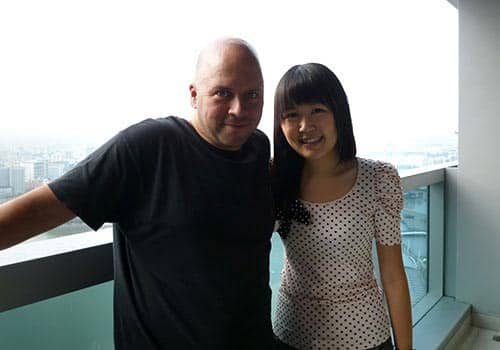
Derek and Me

Me and Derek’s kitten, Brooklyn ♥
I had the honor of interviewing Derek on his success story with CD Baby, and he has been extremely forthcoming in sharing all the lessons he had learned along the way. Like other interviews, I’ve included commentary where appropriate.
I now bring to you, Derek Siver, founder and former president of CD Baby:
Q1) Tell us more about you Derek – Who are you and what are your passions in life?
Born in California, I’m like a stereotypical Silicon Valley American. Very optimistic, individualistic, ambitious, rebellious, confident, and creative. I’m also very much an introvert, which shapes a lot of my preferences. I really prefer to be alone, thinking and creating, or in a good deep one-on-one conversation with someone.
I like building systems to help musicians. Web programming and business design. I also like writing, because I learn a lot and try to share what I learn.
Those are my passions, too. I’ve only ever done what I’m passionate about. I don’t believe people should ever do anything just for the money. You should find what you love to do, and find a way to make money doing it.
Q2) You founded CD Baby, a multi-million dollar company, in 1998. What is CD Baby about, who do you target, and what do you do for your customers?
CD Baby sells music for independent musicians. When I started, it was just an online CD store. Then when the iTunes Music Store launched, we started distributing digital audio to the big online sellers of digital music. So we became both a store and a distributor. But only for independent musicians. No Madonna or Miles Davis. Only musicians who are putting out their own music directly, without a record label.
Q3) You sold CD Baby to Disc Makers (leading CD and DVD manufacturer) in 2008. How much revenue was CD Baby generating a month when you sold it?
I never measure revenue – only profit. A lot of businesses measure revenue, like, “We brought in over $1 million last month.” But if you’re spending $1.1 million then you shouldn’t be bragging. Instead I only ever measured the profit that was leftover after all expenses. And CD Baby was making about $250,000 (USD) a month net profit by 2008.
Q4) How long did it take to achieve this monthly revenue?
Ten years. The business really just slowly grew and grew and grew over ten years. For example: a full year after I started it, it was only making $2000 a month. Then a year later, $5000 a month. A year later, $10,000 a month. A year later, $20,000 a month. It was only after year 8-9 that it got to $250,000 a month.
(Celes: Very rarely do people start a business and strike it rich right away. In fact, such cases are more flukes than anything. Look at Citrusox, which Carol took almost a decade to build it to a million-dollar brand today; Delcie’s, which Delcie took 2+ years before the brand became known in the local community; and Udders, which David spent 4 years (and 6 months of pre-launch preparation) to build it to a popular local ice cream parlor with 5 outlets. Sheer, hard work over time is the consistent formula to success.)
Q5) How did you first come up with the idea for CD Baby?
I was just selling my own CD. Then my other musician friends asked if I could sell theirs, too. That’s all there was to it! I just said yes!
Q6) After you came up with the idea, how did you get started with the business? Please walk us through what the first 1 year of your journey was like.
First, you have to understand that I wasn’t trying to start a business. I was really just helping friends as a favor, because I had built this thing for myself that they wanted to use, too.
Imagine if you had a car, and your friends keep asking for rides, then eventually you charge a little money for rides, and later someone asks you how you got your taxi business off the ground.
It’s not like I had a great plan or strategy. People kept asking me to help so I just said yes.
The first year, I was just selling up friends’ CDs on my website in my spare time. I’d only sell a few a week, so I’d ship them in my spare time. Eventually this became a part-time job.
By the end of the first year, I had hired a local guy to help me with shipping and emails, while I spent more time doing the back-end programming to improve the site, to add more features.
All of this was just run out of my bedroom. By the end of the first year the CDs had filled my bedroom and living room. In the second year, I moved them into the garage.
(Celes: One of the biggest clues when you’ve stumbled upon something great is when people keep requesting it. For Delcie’s, Delcie realized the opportunity to start a vegan bakery brand when her customers kept requesting more vegetarian desserts/pastries. For Citrusox, Carol realized she should focus on socks and legwear when she noticed socks contributed to almost 50% of the sales for her initial pushcart business.
By the way, check out this page for pictures of CD Baby when they first started. No fancy offices, elaborate set-ups, or anything like that – just purely delivering the best value for the customers! Reminds me of how Google started in a student’s dorm room, and how Apple started in a garage. )
Q7) How long did it take before you experienced the first signs of success? What were those signs of success?
In a way, success was felt right away because everyone really loved this idea, friends told friends about it, and strangers kept coming to it, even though I was doing no work to promote it.
Big money didn’t come until four years later, but some money and enthusiasm came right away – so I knew I was on to something that could be big.
Q8) At which point did you know with certainty that the business had taken off?
There was no big moment. You just keep slowly doing what you’re doing, solving problems, helping people, managing growth. About four years into it, I visited Los Angeles, and everybody treated me like I was famous. So I realized that my little thing must be successful.
Q9) Why did you eventually decide to sell your business in 2008? How has your life changed since selling it?
I really sold for personal reasons, not for money. I just felt done with it. Like a painting after a painter puts the final brushstroke on it, I just felt I had nothing more to add. The business did everything I wanted it to do, and I had no more vision for it. I realized I was doing my clients a disservice by remaining the leader of something when I didn’t want it to grow anymore, so I sold it to a company that felt it had a long way to go.
Since selling, I’ve spent the last three years kind of going back to school. Instead of a university, though, I created my own school by diligently reading educational books about business, psychology, investing, health, happiness, and philosophy – things that I really want to know well for the next stage of my life. It also helps me learn some lessons about all the things I did wrong in the last stage of my life.
Instead of just reading, I’ve been taking detailed notes for retention. And I’ve been making sure to actively apply what I’ve learned.
My life is less busy, but I’m learning a lot more.
(Celes: Derek sold his business as he felt done with it. It was time for him to move on to something else. As the business owner, the potential of your business lies in your vision, and your passion for it. If you ever outgrow that passion one day, the best way to continue its growth is to hand it over to someone who is more passionate about the cause than you are. Otherwise, you’re not being fair to yourself, the business, or your customers.)
Q10) What would you say were your biggest success drivers in building CD Baby as a business?
A lot of it was just luck. I built this thing at a time when there were no other ways for musicians to sell their music online. If I would have done it a year later, it would not have been successful.
A lot of it was my selfless focus entirely on the customer. Since I didn’t really want to start a business, I was just focused entirely on helping people however I could. I didn’t care about profit – only that I made enough to sustain, to be able to continue doing it. This kind of philosophy becomes apparent in a hundred little ways inside a company. It changes how you handle phone calls, refunds, emails, policies, and everything else.
Lastly – it was my communication style. Since I didn’t really consider it a business, I treated everyone like they were my good friend. This kind of casual warmth is what really drew a lot of people to CD Baby.
(Celes: Inherent in how Derek managed his business was how he built it around the customer. Customers’ needs came first before all else. While he wasn’t doing it with a profit-making, business-developing agenda, it was precisely this selfless focus that made CD Baby the successful brand it is today.)
Q11) Looking back, what were the biggest obstacles you faced in your entrepreneurship journey (from 1997 to today)? How did you overcome them?
There were no obstacles at the start. I was doing something that everyone wanted me to do. The doors were wide open.
But in my last few years, when I had 85 employees, it was really difficult dealing with 85 people’s personalities and needs. I’m not much of a people person and really wanted to spend my time in deeper thinking and learning, so I hated management, and was quite bad at it.
Q12) What are the biggest lessons you’ve learned in this journey?
The biggest one is that your business, and your role in your business, can be anything you want. You can make your little utopia – and do things the way you think they should be done in a perfect world. You don’t have to do anything that any other business does. And the same with your role: just because you’re the owner doesn’t mean you have to do business meetings, be a manager, or anything else. You can make your role whatever you want it to be.
If you’re really interested, I’ve actually just finished a whole book about this subject. It should be out soon. See http://sivers.org – and it should be on the home page when available.
(Celes: As the business owner, it’s up to you to design your work using whatever mediums best resonate with you. There are no limits, literally. In a way, it’s all fluid and the only structures are those you set yourself. This is why I love running my business, because I have full reign over how everything should be. There are no barriers between me and my vision, just me. This is where skills development and leveling up are critical.)
Q13) If you are to start all over again, what are the top 3 things you’d do as you start your business?
- Test the idea on as many people as possible.
- Only continue when lots of people love the idea so much that they are willing to pay you to do it. (Celes: Remember that money is value. If you’re offering value, people will want to pay you for it.)
- Make a working prototype as fast as possible. Don’t stay in hiding, trying to perfect anything. Launch too soon, not too late. (Celes: Speed is of the essence in the business world. Perfectionism is overrated – it’s all about experimenting, learning, and continuous tweaking. If you’re afraid to make “mistakes” and procrastinate getting started, you’ve to get over your issues, because the only person bothered about them is probably just you.)
Q14) How would you advise someone who is just starting his/her business and wants to bring it to the million-dollar mark and beyond? Feel free to elaborate as much as possible.
Do those 3 steps, first. But also: read these books:
- Personal MBA by Josh Kaufman
- Four Steps to the Epiphany by Steve Blank
- Lean Startup by Eric Ries
– and do everything they recommend.
Remember to keep your focus entirely on helping people, not on the million dollars. If you’re just focused on the income, you’ll do stupid things that don’t actually add any value to the world, but that promise you riches. (Like all those SEO click farm affiliate things.)
Add value to the world. Give more than you receive. Be selfless and go over the top in helping people.
Lastly, to get to that million-dollar size, it has to be something that’s a system that runs while you’re asleep. If you make something that depends on you being hands-on, it can never grow to an unlimited size. You have to build a system.
(Celes: Always think about how you can scale up your work. The more you can automate, the more the business can run without you, the better it is. But first, develop mastery of your core work, so you have an intimate understanding of how things should be like. Otherwise it’s like trying to sprint before you can crawl.)
Q15) What’s next in your plans?
Building more systems to help musicians. :-) Go to sivers.org and please send me a little email to say hello, if you’d like to be involved.
Special thanks to Derek for this interview! Derek is the founder and former president of CD Baby, the largest online store for independent musicians. To find out more about CD Baby, visit www.CDBaby.com. To learn more about Derek and read his writings, visit his blog at www.Sivers.org.
This is part of the Successful Businesses Interview Series, where I feature successful businesses that are making a difference in others’ lives.

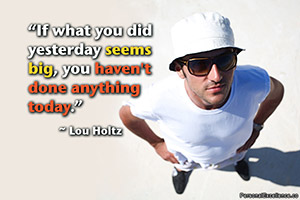
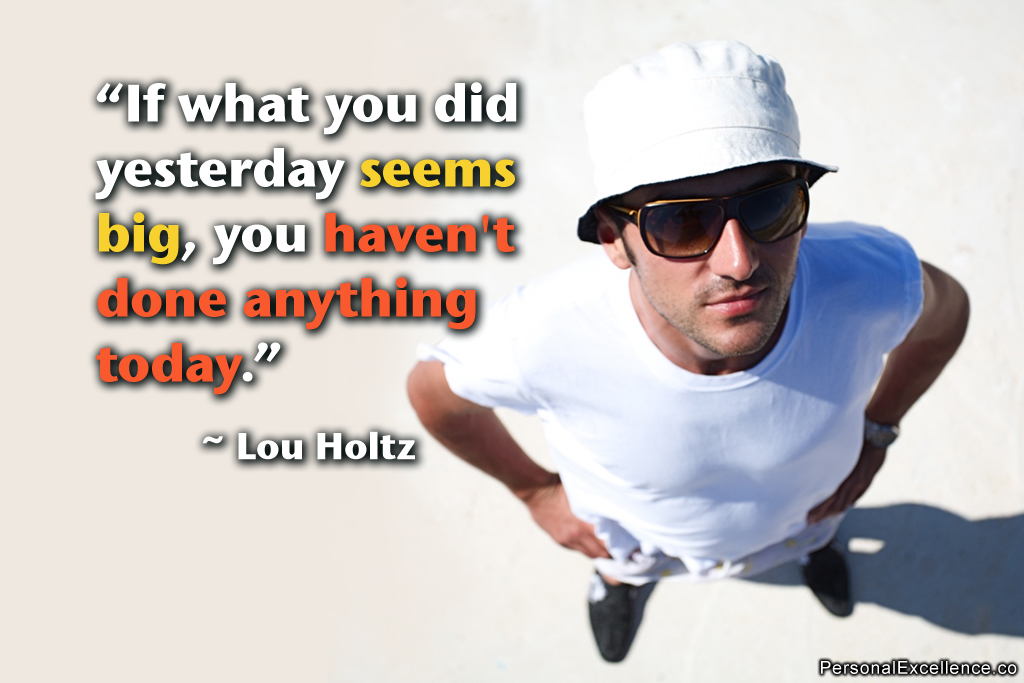
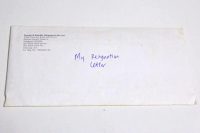
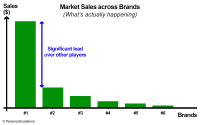
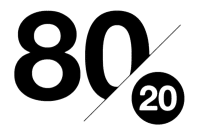
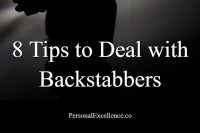

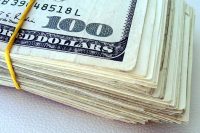
 Thanks for reading. If you like my free articles, join my private email list and get my latest updates and articles sent right to your inbox.
Thanks for reading. If you like my free articles, join my private email list and get my latest updates and articles sent right to your inbox.